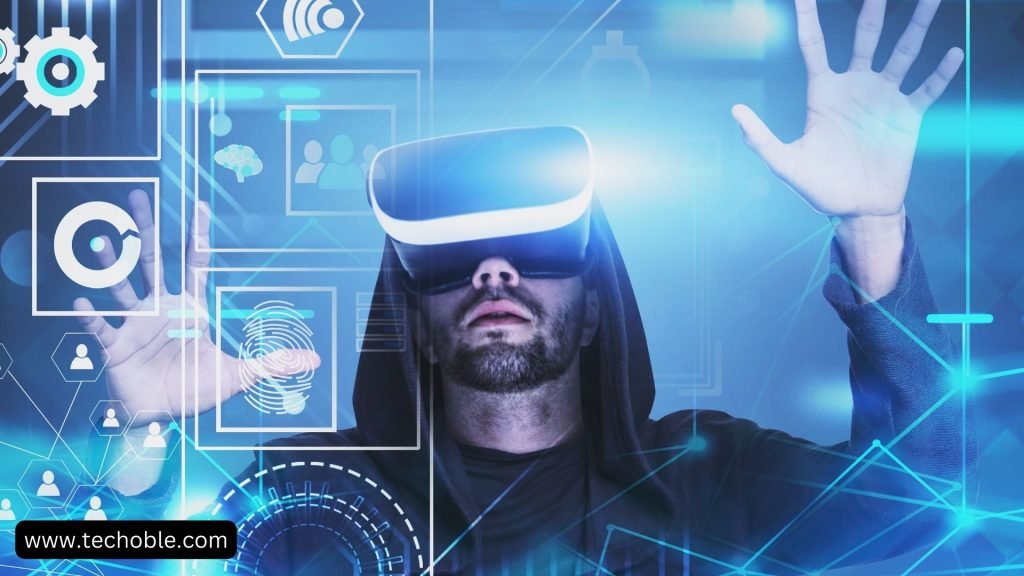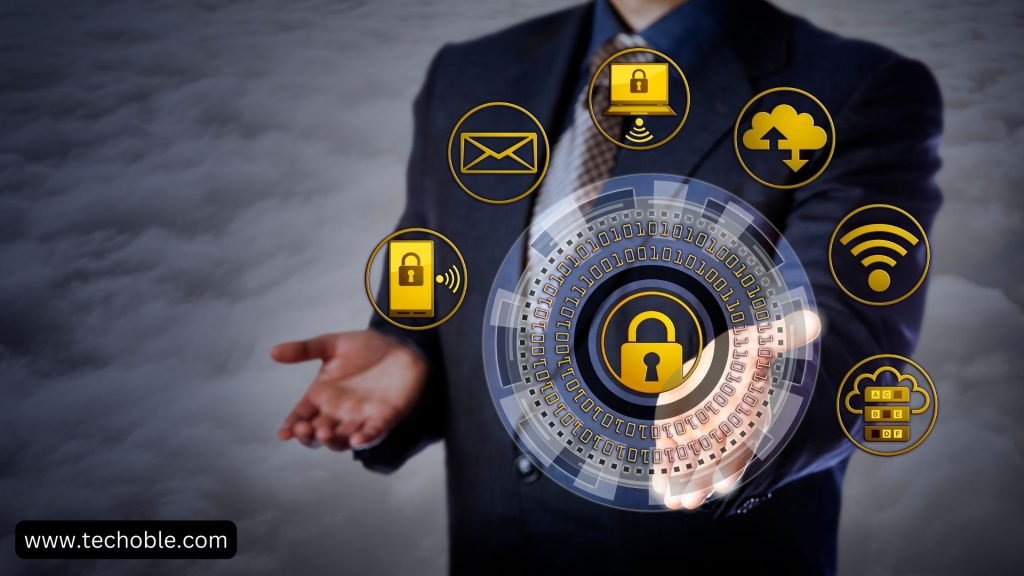 Cybersecurity is more important than ever. With the rapid growth of technology, cybercriminals have found new ways to launch attacks. At the same time, artificial intelligence (AI) is stepping up as a powerful tool to fight these threats. In this article, we will explore how AI is transforming the world of cybersecurity, how it improves security, its challenges, and what the future holds.
Cybersecurity is more important than ever. With the rapid growth of technology, cybercriminals have found new ways to launch attacks. At the same time, artificial intelligence (AI) is stepping up as a powerful tool to fight these threats. In this article, we will explore how AI is transforming the world of cybersecurity, how it improves security, its challenges, and what the future holds.
How Is AI Revolutionizing Cybersecurity?
AI is changing cybersecurity by helping experts detect threats faster and reduce human errors. Here are key ways AI is making a difference:
Real-Time Threat Detection
- AI algorithms can analyze data in real time, spotting unusual activity that might indicate a cyber-attack.
- Machine learning models learn from past data to predict and prevent future attacks.
Handling Complex Data Sets
- Cybersecurity teams deal with large amounts of data, from logs to security alerts.
- AI tools can process this data faster than humans, identifying patterns that signal potential threats.
Zero-Day Attack Prevention
- Zero-day attacks are vulnerabilities unknown to security teams.
- AI can recognize unusual patterns, giving early warnings before these vulnerabilities are exploited.
Behavioral Analysis
- AI systems can analyze user behavior to detect anomalies.
- Example: If a bank employee tries to access sensitive files outside of working hours, AI can flag this action as suspicious.
How Can AI Be Used to Improve Cybersecurity?
Automating Routine Tasks
- AI-powered tools automate repetitive tasks like log analysis and system monitoring.
- This saves time and allows human teams to focus on more critical issues.
Strengthening Threat Intelligence
- AI gathers information from different sources, including the dark web and threat databases.
- This intelligence helps security teams prepare for potential attacks before they happen.
Improved Phishing Detection
- Phishing attacks trick users into sharing sensitive information.
- AI tools scan emails for phishing indicators, blocking malicious emails before they reach the inbox.
Automated Response to Threats
- AI systems like SOAR (Security Orchestration, Automation, and Response) respond instantly to threats.
- Example: AI can isolate an infected system to prevent malware from spreading across the network.
What Is the Relationship Between AI and Cybersecurity?
AI and cybersecurity work together to create smarter defenses. Here’s how:
- AI Enhances Cybersecurity Systems: AI improves existing security tools by making them more intelligent and responsive.
- AI as a Learning System: The more data AI processes, the better it becomes at identifying threats.
- Collaboration Between Humans and AI: AI handles complex tasks, while human experts make final decisions for security actions.
- AI and Predictive Security: AI models predict attacks before they happen, preventing damage.
Can AI Replace Cybersecurity Professionals?
AI is powerful, but it cannot replace cybersecurity experts. Instead, it complements their work by making tasks easier and more efficient.
- Why Human Expertise Is Still Needed: Cybersecurity requires critical thinking, problem-solving, and decision-making—skills that AI cannot fully replicate.
- AI-Assisted Security Operations: Security teams use AI to handle alerts, but humans are still responsible for setting strategies and policies.
- Example: AI might detect malware, but a security analyst decides whether to block the threat or investigate further.
Benefits of AI in Cybersecurity
Speed and Efficiency
- AI analyzes data and responds to threats faster than humans.
- This quick response minimizes the damage caused by cyber-attacks.
Accuracy in Threat Detection
- AI reduces false positives by learning to distinguish between real threats and harmless activities.
Scalability
- AI-powered tools scale easily to monitor large networks, no matter how complex they become.
Reduced Human Error
- With AI handling repetitive tasks, the chances of human error decrease.
Challenges of Using AI in Cybersecurity
Data Privacy Issues
- AI systems need access to data to function, raising privacy concerns.
- Organizations must ensure that sensitive information is protected.
Adversarial AI Attacks
- Hackers are finding ways to trick AI systems by manipulating data inputs, known as adversarial attacks.
High Costs of Implementation
- Setting up AI-powered cybersecurity tools requires significant investment.
Need for Skilled Experts
- Organizations need trained professionals to manage AI-based systems and interpret their results.
Real-World Examples of AI in Cybersecurity
| Company | AI Technology Used | Impact |
|---|---|---|
| Chronicle Security AI | Detects threats in real-time | |
| Microsoft | Defender | Uses machine learning to prevent attacks |
| Darktrace | AI Immune System | Monitors and adapts to evolving threats |
Future Trends: What Lies Ahead?
AI in cybersecurity is evolving rapidly. Here are trends to watch:
AI-Powered SOCs (Security Operations Centers)
- AI will take on a more prominent role in managing security operations centers, automating many functions.
Quantum AI Cybersecurity
- As quantum computing develops, AI will play a key role in protecting systems from quantum-based attacks.
AI and Blockchain Integration
- Combining AI with blockchain will enhance transparency and data integrity in cybersecurity systems.
Ethical AI Use in Cybersecurity
- AI must be used responsibly to avoid bias and ensure fair decision-making.
How Businesses Can Adopt AI in Cybersecurity
Choose the Right AI Tools
- Assess your organization’s needs and select AI tools that align with them.
Train Your Staff
- Provide training to help employees understand and work with AI-based systems.
Monitor AI Systems Continuously
- Regular updates and monitoring are necessary to keep AI models effective.
Partner with AI Vendors
- Collaborate with vendors who specialize in AI-powered security solutions.
AI is revolutionizing cybersecurity by making systems smarter and faster. It helps detect threats in real time, prevents attacks, and makes security teams more efficient. However, AI alone is not enough. Human experts are still essential to guide, manage, and respond to complex challenges. As the future unfolds, businesses must combine the strengths of AI with human intelligence to stay ahead of cyber threats.
FAQs: Your Cybersecurity Questions Answered
Q1: How is AI revolutionizing cyber security?
AI transforms cybersecurity by improving threat detection, automating tasks, and predicting attacks.
Q2: How can AI be used to improve cybersecurity?
AI can automate tasks, strengthen threat intelligence, and respond to attacks faster.
Q3: What is the relationship between AI and cyber security?
AI enhances cybersecurity by providing advanced tools, while human experts make strategic decisions.
Q4: Can AI replace cyber security?
No, AI complements cybersecurity but cannot fully replace human expertise.
